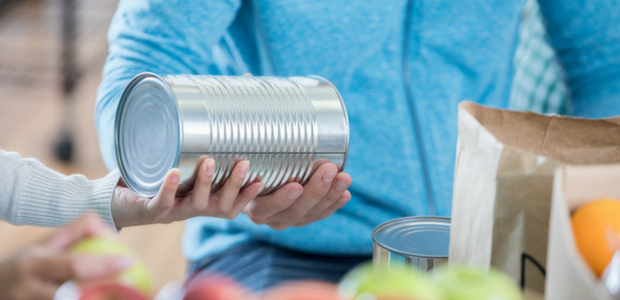ALSO READ: Let’s talk about food waste – Food24 editor weighs in
Charitable organisations are asking for food donations, but so often the request merely states “non-perishable” and we’re left wondering, just what exactly are they in need of? We made a list of food items that will bring the most joy, and a few to pass on.
1. Canned beans and legumes
Chickpeas, kidney beans and butter beans are a versatile food product that can make soups, stews and even salads while providing a high protein meal.
2. Tea and coffee
A meal is essential, but sometimes a hot beverage can do just as much to feed the soul. Often, volunteer staff don’t have tea or coffee to enjoy during their shifts, so this will help them help more fellow South Africans.
3. Milk powder or UHT milk
Not only for tea time, milk can help make a nutritious breakfast for children and adults who may struggle with solid foods. See Oatmeal
4. Cooking oil
An essential ingredient that is often needed, and not very often donated.
5. Dried spices
Making foods tasty and interesting is a constant challenge for charitable kitchens. Dried herbs and spices can help them create different flavours with basic starches and vegetables. Think ground cinnamon, chilli flakes, dried rosemary or mixed herbs.
6. Salt
An essential in both savoury and sweet dishes, a little touch of salt can make a simple bean soup delicious.
7. Oatmeal
Preparing a healthy breakfast for many people can often be a challenge. Oatmeal is a nutritious, filling meal that can be adapted with raisins, cinnamon or bananas to make a great meal, especially for children.
8. Soup powders and stock cubes
It’s all about flavour! A simple bean stew can taste amazing with the addition of some soup powder or vegetable stock cubes.
9. Sugar
Rich in energy (and flavour), sugar can make all the difference at tea time, as well as at breakfast.
10. Tinned and dried fruit
Long lasting fruit can make a bright and welcome dessert option, or added to oatmeal for healthy breakfast. Raisins, apricots and prunes can help jazz up a sago pudding.
11. Peanut butter
Peanut butter is high in proteins and fats, making it the ultimate food choice for hungry South Africans.
12. Tinned vegetables
Sweetcorn, peas and carrots add colour, texture and vitamins to any meal
Products to avoid:
1. Any food stored in glass jars
Glass can easily be damaged in transit. For example, choose peanut butter in a plastic container.
2. Junk food
Chocolates, cooldrinks and chips are tasty, but offer very limited nutrition.
3. Meal kit boxes or baking kits
These often rely on fresh, and relatively expensive ingredients to turn them into a meal, such as mince meat, milk, eggs or butter.
Where to donate:
Food based charities
Food for Life has charitable branches nationwide, working towards a hunger free South Africa.
Neighbourhood churches or mosques
They will know the families in your community who are struggling to get enough nutritious foods, and will be able to assist with distributing them.
Local schools and daycares
Many children across South Africa are sent to school with no food at all. Soups and sandwiches can make a difference to both students and teachers.
Johannesburg Childrens homes, Gauteng
Your local clinic or hospital
Hospitals feed hundreds of patients and staff on a daily basis. Nurses work tirelessly, and will appreciate sincerely some tea time supplies and a few packets of biscuits.
Friends of Valkenberg Trust, Cape Town
Your local grocery store
National chain stores are a convenient place to donate food products.
Food Forward and Pick n Pay Mandela Day Food Drive
Shelters and Places of Safety
The Haven Night Shelters, across Cape Town
Frida Hartley Shelter, Gauteng
The Saartjie Baartman Centre for Women and Children, Cape Town
ALSO READ: Would you accept leftovers from total strangers? Here’s the app that helps you find free food

